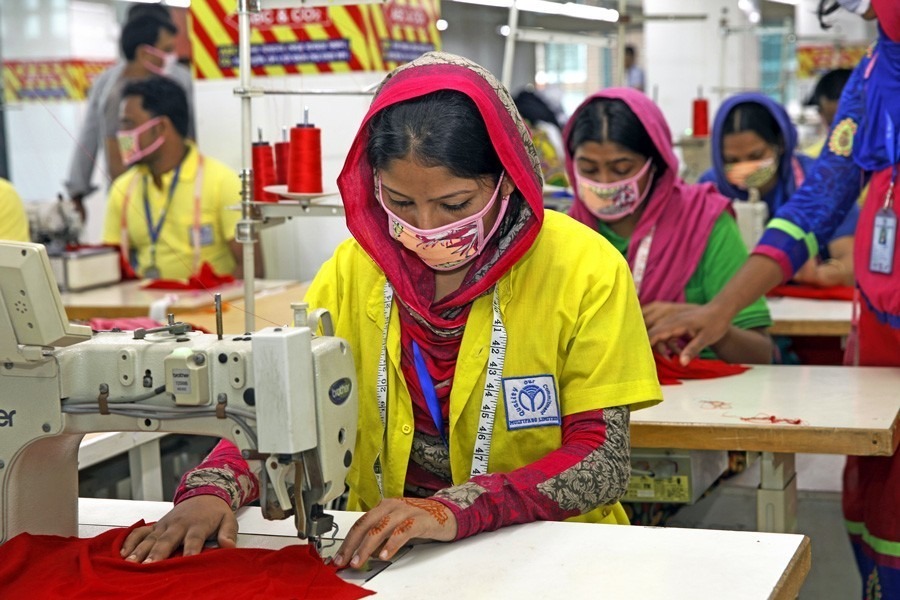
Published :
Updated :

Contrary to what has been claimed in a number of media reports, a recent survey of some 20 global apparel buyers points to their continued confidence in Bangladesh readymade apparel (RMG) industry. Following widespread protests by workers in the industrial belts of Gazipur and Ashulia since early this month, nearly 100 RMG factories were forced to shut down disrupting the export supply chain. These events have sent shockwaves across Bangladesh and beyond, but findings of a survey carried out by the Business and Human Rights Resource Centre (BHRRC) provide some reprieve. The centre had reached out for feedback from some twenty global clothing brands to know about their future plans on apparel sourcing from Bangladesh particularly in light of the recent labour-related disturbances. Interestingly, some of the major names have stated that they have no immediate plans to divert orders from the country, which include Adidas, C&A, H&M amongst others. Although some brands politely declined to share their future plans, one cannot forget that the country offers not only the economies of scale in production but offers some of the most competitive prices for particular segments in apparels anywhere in the world.
The relations between foreign brands and Bangladeshi garments manufacturers span many decades and it is not that easy to replicate these longstanding relations in a different country simply because of more favourable conditions elsewhere. Cost remains a major issue and sourcing particularly low-end products any of the other competing countries including India, Cambodia or Vietnam will inevitably bring new challenges for buyers. Hence it makes sense for a lot of these brands not to have transferred orders as they are waiting to see how the situation unfolds. Interestingly, the BHRRC found some major fashion brands to be unhelpful in coming up with information requested. As pointed out in a recent report published in The Financial Express, the body stated that "several brands were reluctant to provide information on the impact of the protests on how they have ensured responsible purchasing practices and protection of worker welfare during the unrest."
With the exception of two brands out of 11, all others were on board to offer varying degrees of vendor support and letters of credit options to help ease cash flow issues. What all this points to is that a sizeable portion of international brands are not abandoning the country's RMG sector. While one brand has been forthcoming in providing "low-interest or no-interest financing to suppliers and have also covered the cost of air shipments to mitigate delivery challenges", this is by no means the consensus amongst brands covered. Hence the question arises, what will be brands' response in the next quarter should unrest continue to persist in industrial areas.
It is obvious that the potential fallout of any further unrest will have on Bangladesh and it is heartening to learn that a tripartite agreement among government, the industry and labour rights organisations have been reached. That said, there are enough external elements that appear hell bent on continuing to brew discontent over perceived deprivations and it is very much up to authorities to improve the law and order situation. Buyers for their part should keep faith that the country is picking up the pieces after a total change in the seat of government and work with their Bangladeshi counterparts to overcome obstacles, and not abandon what is obviously a win-win situation out of panic. Things are improving on the ground and time needs to be given to restore order.


 For all latest news, follow The Financial Express Google News channel.
For all latest news, follow The Financial Express Google News channel.